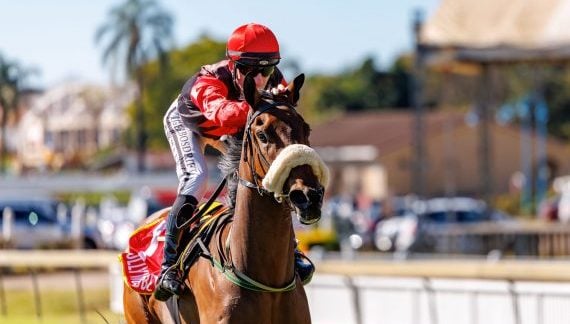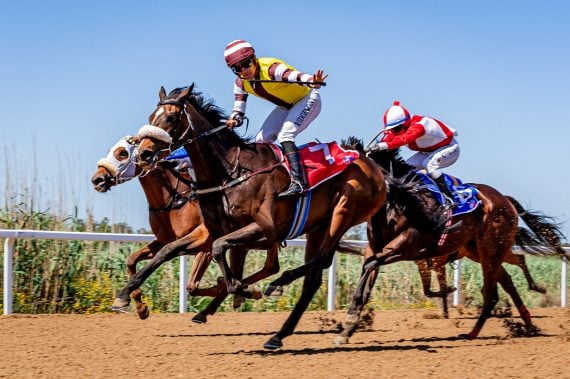KZN law graduate and sports fanatic Ian Smith, who was a pupil of the top KZN School Kearsney College, has had an interesting career from a UK base in the legal aspects of sports administration and this inadvertently had a heavy bias towards match-fixing cases from about 2010 onward.
He gave an interesting insight into the techniques used to identify match-fixing as well as race-fixing in horseracing and after a subsequent Turf Talk interview with NHA CEO Vee Moodley it emerged that South Africa’s horseracing authority is right up there with normal worldwide standards when protecting the integrity of our sport.
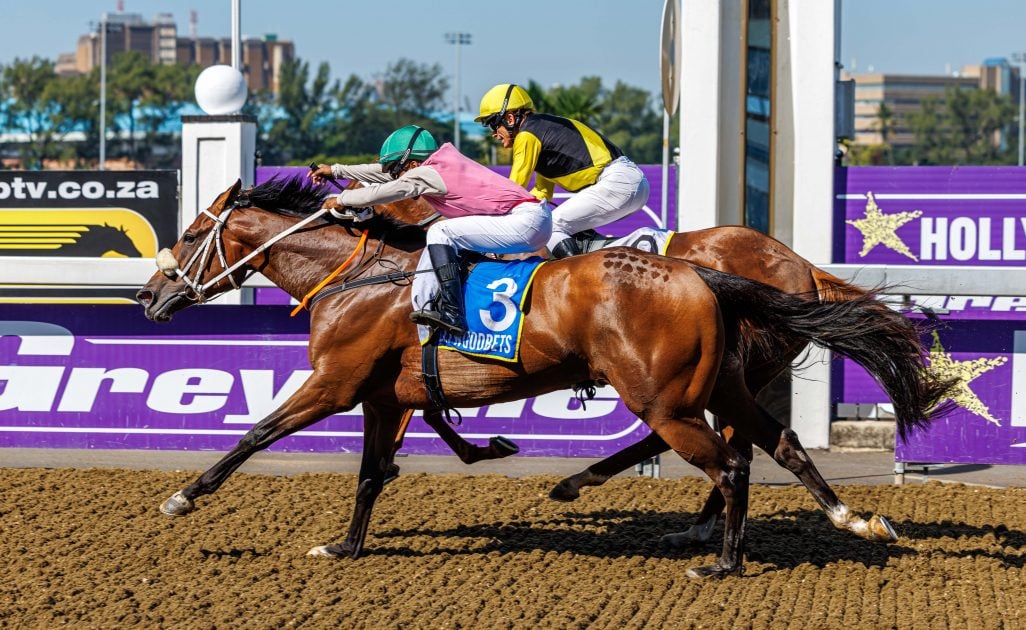
Under scrutiny (Pic – Candiese Lenferna)
This is a relevant subject in SA horseracing at present as it was revealed by the NHA that a scrutiny of betting patterns on various platforms would be included in the investigation into the ride of Andrew Fortune on Cherry Oh Baby at Hollywoodbets Greyville recently.
Ian did his articles in England and broke into the sports industry after the 1995 World Cup when representing a few rugby players who wished to turn professional.
However, by the end of 1999 the vast majority of his work was in the sport he most loved, cricket, as he was being given more and more work by the Professional Cricket Association.
He was the only player representative lawyer in worldwide cricket other than Tony Irish when the Hansie Cronje scandal broke and he represented numerous professional cricketers, including school contemporary Andrew Hudson, when the negotiations around the creation of the new anti-corruption code was being drafted by the ICC.
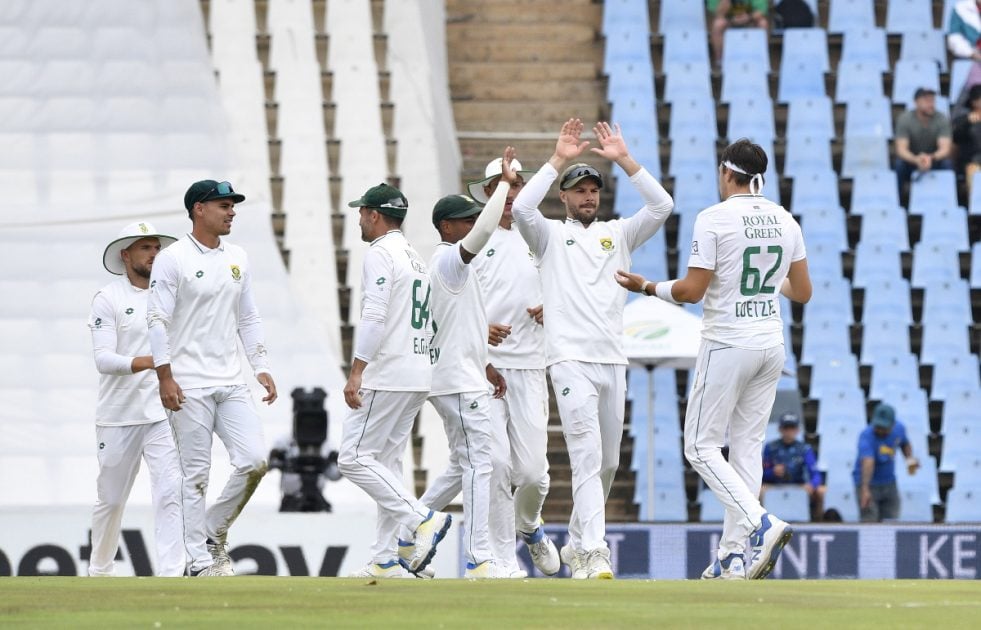
He became increasingly embroiled in cricket and by 2004 he had moved in-house with the Professional Cricket Association as the legal director.
However, after the founding of the IPL and other such leagues there was an explosion of match-fixing cases to the extent that it was virtually the only thing he dealt with and his focus changed from UK domestic cricket to international from 2010 onwards.
From being naive about betting related matters back in 2000 he was an expert on it by the time he left cricket in 2015 and his expertise in this and in sports regulatory matters led to him setting up an organisation which is today called the Esports Integrity Commission.
There was no governance in the rapidly expanding Esports industry and Ian, who was effectively the job title, became a voluntary regulator. The commission dealt with anti-doping and anti-corruption and Ian decided what to investigate and whether somebody was guilty. In much the same way as South African horseracing’s method whereby a jockey or trainer can avoid an inquiry by admitting guilt, the commission only goes to an independent disciplinary panel if the person involved wants to contest the charge.

Ian Smith (Pic – Supplied)
Ian, who also does a lot of consultancy for traditional sports like football and motor sports, described the process of fishing out match-fixing.
He said, “When bookmakers set up their markets, it is based on an analysis of mountains of historical data. However, the underlying assumption is that the players or the team are doing their best to win. What they don’t want, of course, is a team deliberately trying to lose or manipulate the outcome to win a bet, because ultimately that is money being stolen. So what has happened over time is that because of the incredible volumes of digital data, increasingly you know how the betting on any event is going to behave. So every bookmaker has set up parameters and they use algorithms to check whether the betting stays within those parameters. As soon as the betting pops out of those parameters, they call it either an unusual or a suspicious bet, with suspicious being more highly charged than unusual. Unusual is, for example, let’s say I bet 50 quid a week on tennis and golf and then I put 500 bucks on a football match. That’s unusual and there’s scrutiny of that. But what I did was I set up an information sharing network amongst a large number of betting operators, data analyst companies and law enforcement regulators to create an alert network. So basically any bookmaker or any of the other stakeholders sends us an alert when they see something suspicious or unusual.”

He continued, “We then disseminate that alert to the rest of the network with a question of are you seeing the same thing? Or do you know why the betting’s behaving as it does? Then we get a bunch of responses. The good ones are when some trader can explain why it’s doing what it’s doing and that’s helpful because it means the red flags that are being raised can be lowered. An example would be a horse striding short down to the start.”
He added, “The next step happens if the betting is suspicious and there is no logical explanation, so it then looks like a match fix. An example would be a suspicious bet whereby Team A is going to lose match two of the best of three and duly does so. We then get an expert to analyse the match and to form an opinion on whether the player was doing his best or whether, in Esports as an example, there were moments in the game he was deliberately losing by deliberately getting killed or missing shots.”

He continued, “If the answer to that is yes, the play is suspicious, I can proceed on that information alone sometimes if it’s rock solid. But the next usual stage is to try and link the people who placed the suspicious bets to the player that played suspiciously and that’s a separate intelligence investigatory process. I basically use software where I put in the name of a player and then put in the name of the bettor and hope that when the software looks through the internet they find a connection between the two, which is often something like they went to school or university together or they’re Facebook friends or they follow each other on Twitter. Any kind of link then gives me a way forward in terms of the investigation. If there is a link, then generally we’re going to prosecute the player. But that’s just the beginning of the prosecution part of the case.”
Ian said the process used in horse racing was exactly the same.
He said, “Obviously there are different doping offences because you’re doping the horse and there are different cheating offences, but effectively the evidence trail is exactly the same. It’s an alert from the bookmaker, the steward, and then various bodies, but particularly every horseracing body has an integrity function, and horse racing has had them for years. They’re quite well developed. A lot of the practice in traditional sport originated from horse racing, which was to then look at the betting data exactly as I’ve described, and then kind of go, okay, did the jockey ride to the bet? Can you reasonably say when you review the video of the race that he or she held the horse back or whatever? You can compare it to the jockey’s normal riding style as well. Again, you’ve got mountains of data, particularly from experienced jockeys, and then of course you get the confidential data from the betting company who take the bets. You then do exactly as I described, you try and link the bettors to the jockey, for example. Within horse racing you have these really cool powers to confiscate phones, investigate bank accounts, and all of this stuff. It’s actually easier to link the bettors to the jockeys in horse racing than it is in Esport, because whilst I have the power to demand mobile phones and all of this from participants, every time I’ve tried that, the players just tell me to get lost. I end up banning them, but there’s not much more I can do. If a jockey wants to carry on being a jockey, he’s got to hand it over.”
Ian was asked whether the suspicion ever starts with an action on the racecourse, as happened in the Andrew Fortune case.
He said, “I would say less than 50-50, to be honest. In suspicions that are initiated by the ride, a significant percentage of those lead to no evidence in the betting being found that it was fixed. And then it just becomes a riding offence and the jockey could be charged with unprofessional riding.”
The Fortune case is yet to be concluded, but his ride has drawn a wide range of opinions due to his soft style of riding. He has never been hard on a horse throughout his career. He did appear to be caught napping though, but unless the betting patterns are found to be suspicious he might just be charged with unprofessional riding.
Ian went on to mention another problem in identifying match fixing or race fixing and this is what is known as mobile operators.
 These unregulated bookmakers take bets by cellphone and have hundreds of cellphones in operation. The bettors have accounts that go up and down per bet and payouts are in cash. These bets are almost impossible to trace unless you have a whistle blower. The biggest of these mobile operators are often controlled by gangsters and are as sophisticated as the big bookmakers like Ladbrokes, Coral or William Hill.
These unregulated bookmakers take bets by cellphone and have hundreds of cellphones in operation. The bettors have accounts that go up and down per bet and payouts are in cash. These bets are almost impossible to trace unless you have a whistle blower. The biggest of these mobile operators are often controlled by gangsters and are as sophisticated as the big bookmakers like Ladbrokes, Coral or William Hill.
Illegal betting through unlicensed operators creates a huge dilemma and perpetrators need to be dealt with accordingly. The integrity of the event or race result may have no legitimacy. This is totally unfair to the broader betting public.
Another problem is betting syndicates. One person putting on a £100,000 bet on a horse race is going to raise a red flag, but 100 people each putting on a £1000 bet does not raise any suspicion.
These syndicates have anything from ten people to 1000 people and then on their behalf they will have a fixer in different sports. For example somebody who has a connection to a certain sports team.
In cricket the fix is often just on a tiny section of the game and this is called spot fixing. A bowler could, for example, be bribed to give away a certain amount of runs in one over or even to bowl a no-ball at a given time.
Ian said match-fixing or race-fixing is mostly done with coercion and cooperation, it is very rare for there to be a threat of violence.
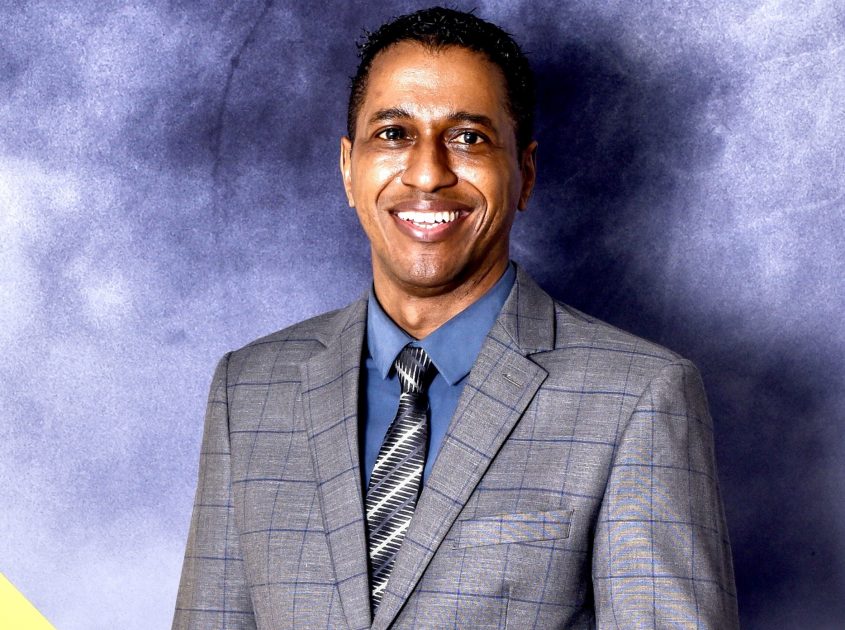
NHA CEO Vee Moodley (Pic – Supplied)
Vee Moodley, CEO of the National Horse Racing Authority of South Africa (NHA), confirmed that the NHA have MOUs (Memorandum Of Understanding) and MOAs (Memorandum Of Agreement) with local and international bookmakers and international Betting Exchanges. The alert system is in place in much the same way as explained by Ian Smith above.
Betfair is illegal in South Africa, but in fact contrary to the fears that it would lead to more corrupt activity it has proved to be one of the best tools for weeding out corruption because those who are laying bets, for example, can be identified and relatively easily linked to a corrupt race or match, if relevant.
Ian Smith has in fact on occasion even linked illegal betting operations to suspicious activity through Betfair, because these illegal operations often lay off bets on Betfair. The SA authorities should hence consider unbanning Betfair.
- Originally published on www.turftalk.co.za







